|
|
|
|
Nau mai hoki mai and welcome.
The constitutional crisis in Samoa is a reminder of how much democratic systems depend on mutually understood and observed conventions – especially the requirement that the losing side accepts the result and makes way for a new government. We witnessed a version of it in the US late last year, and now something similar seems to be playing out in Samoa.
Historian Patricia O'Brien puts all of this in sharp perspective in her highly topical analysis of the current situation. As she points out, there is a wider geopolitical context here. Samoa is a regional “microcosm of US President Joe Biden’s recent description of the struggles between democracy and the autocratic political regimes favoured by Chinese President Xi Jinping”.
Coupled with the world attention already focused on prime minister-elect Fiame Naomi Mata'afa as the country’s first female leader, it seems this might be a small-state dispute with much larger implications.
There is plenty more to read in this newsletter and on our homepage, where you’ll find our coverage of the Climate Change Commission’s final advice to government over the coming days.
Thanks as always for your support and readership. Until next time, mā te wā and all the best.
|
Finlay Macdonald
New Zealand Senior Editor & NZ Editor: Politics, Business + Arts
|

|
|
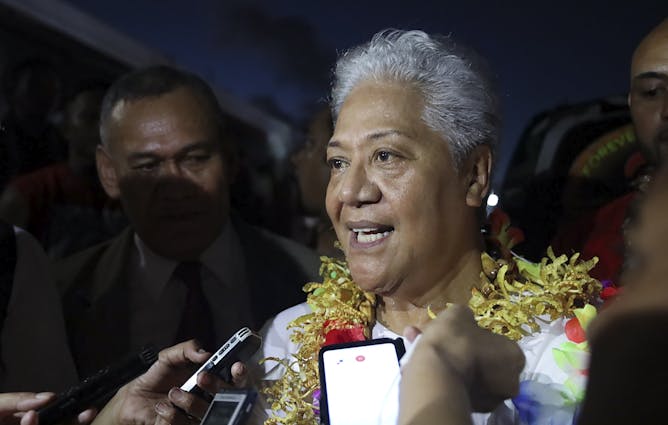
Prime Minister-elect Fiame Naomi Mata'afa talks to reporters outside parliament house in Apia, May 24.
AAP
Patricia A. O'Brien, Georgetown University
Samoa's constitutional crisis has caught the world's attention, but diplomatic rhetoric may not be enough to support the country's democratically elected government.
|

Shutterstock
Sarah Hetrick, University of Auckland; Joanne McKenzie, Monash University; Nick Meader, University of York; Sally Merry, University of Auckland
Our new Cochrane review found antidepressants led to only small improvements in depression symptoms on average compared with placebo.
|

www.shutterstock.com
Alexander Gillespie, University of Waikato
Neither Israel nor Hamas will listen to New Zealand directly, but there is still more parliament can do to promote international peace efforts.
|
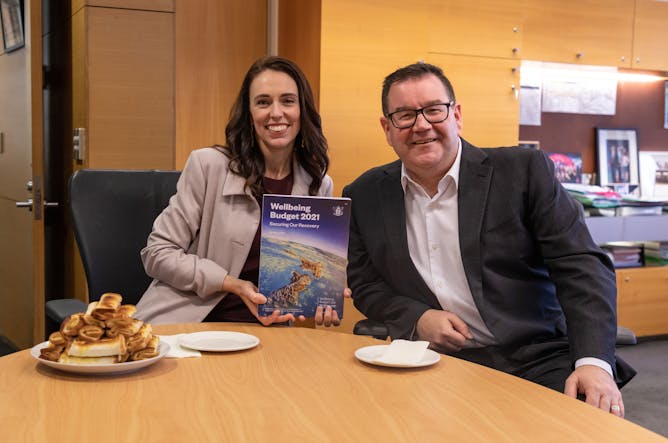
Prime Minister Jacinda Ardern and Finance Minister Grant Robertson on budget day: well-being for all?
GettyImages
Jennifer Curtin, University of Auckland; Sarah Hendrica Bickerton, University of Auckland; Suzy Morrissey, University of Auckland; Udari Herath, University of Auckland
There were no specific initiatives for women's work in the budget, leaving New Zealand trailing Australia when it comes to gender balance.
|

Kateryna Kon/Shutterstock
Stephen Bartos, Crawford School of Public Policy, Australian National University
If wellbeing had been made an explicit goal as it it is in New Zealand, Australia's budget would have been been different.
|
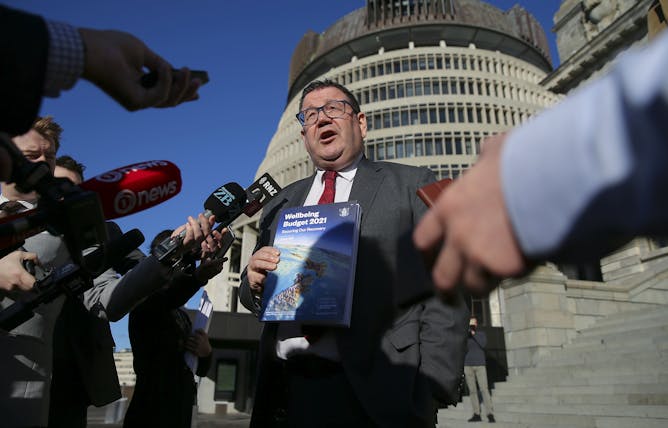
Hagen Hopkins/Getty Images
Jennifer Curtin, University of Auckland; David Hall, Auckland University of Technology; Michael Fletcher, Te Herenga Waka — Victoria University of Wellington; Nina Ives, Auckland University of Technology
By under-promising and over-delivering, Grant Robertson has pulled off a budget that displeases the fewest people.
|
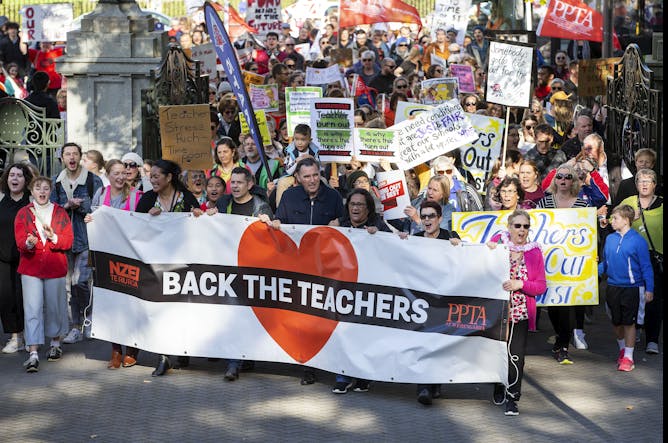
Pay is a perennial issue: this strike by teachers was in 2019 over a government pay offer.
GettyImages
Claire Breen, University of Waikato
Existing gender and ethnic pay gaps in the public service complicate using wage restraint to improve the lot of the lowest paid.
|

Shutterstock/riekephotos
Sam Crawley, Te Herenga Waka — Victoria University of Wellington
Vested interests have lobbied against climate policy worldwide, but that's only one reason for the slow political response. While most people want climate action, they rank other issues as more urgent.
|
From our international editions
|

Kelly Lewis, Queensland University of Technology
If Palestinians' freedom of expression is taken away online, this risks further obscuring their ongoing struggle.
| |
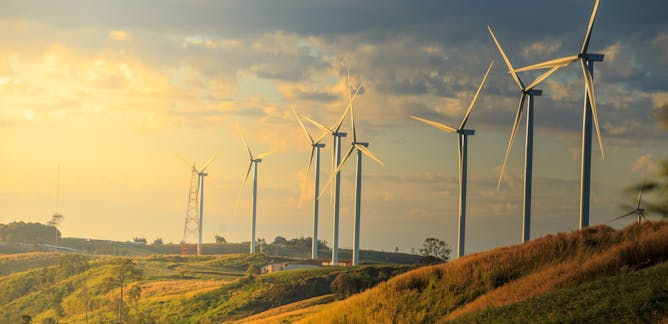
Christian Downie, Australian National University
The opportunity won’t last forever. Countries that move first will gain an advantage in new industries, technologies and export markets. Those that wait may never catch up.
|
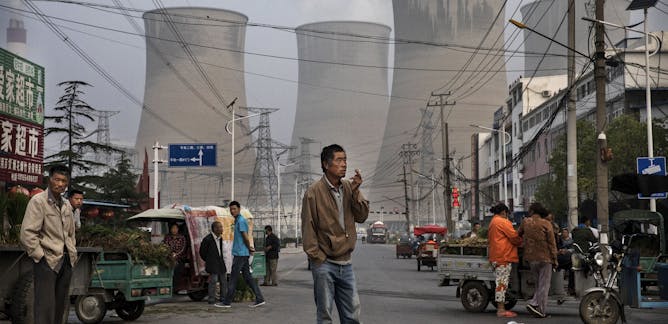
Jeff Nesbit, Yale University
A report from top energy analysts warns that to meet the Paris climate agreement goals, investment in new unabated coal plant projects should stop now.
| |
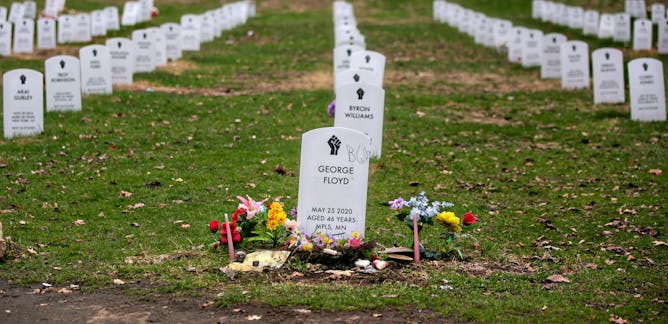
Denise A. Herd, University of California, Berkeley
Evidence shows that many Black Americans experience police killings of unarmed Black people – even those they do not know – as traumatic events, causing acute physical and emotional distress.
|

Marianna Korsos, Aberystwyth University; Huw Morgan, Aberystwyth University
Alfvén waves, first proposed 80 years ago, could explain why the sun's atmosphere is so much hotter than its surface.
| |
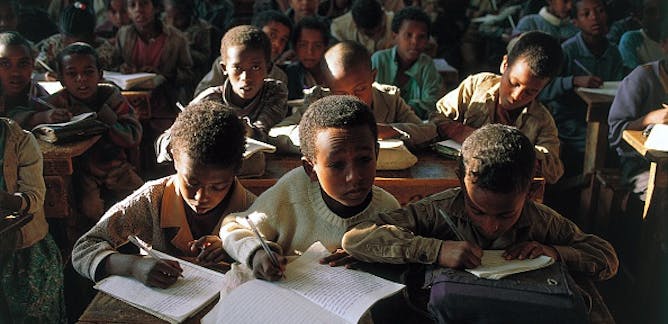
Iwa Salami, University of East London
It's time to shift focus away from bitcoin and to pay more attention to other blockchain projects promising to make real contributions to the world.
|

Tangguh Chairil, Binus University
Indonesian defence planners need to assume the worst-case scenario of future weapon system accidents and account for the whole acquisition lifecycle in weapon system procurements.
| |
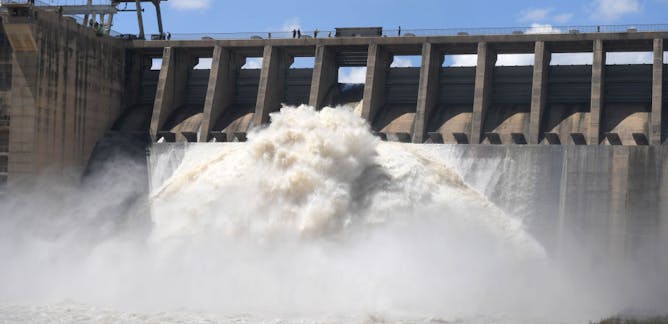
Mike Muller, University of the Witwatersrand
Gauteng citizens need to know the uncomfortable truth: for the next six years, their water supplies will increasingly have to be restricted.
|
|
|
| |
| |
| |
| |
| |
| |
|
|
|
|
|
|
|